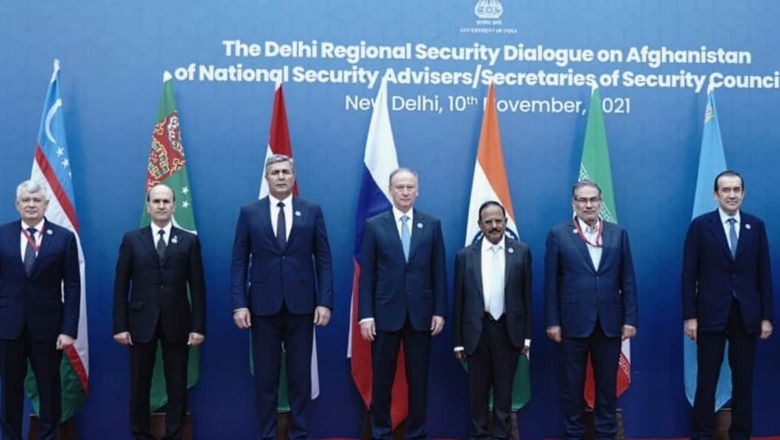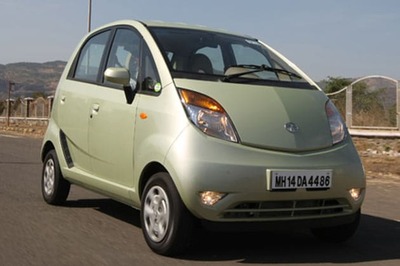
views
The Regional Security Dialogue in New Delhi brought together the National Security Advisors of seven important regional players—Russia, Iran, and the five Central Asian ‘stans—all with serious stakes in the stability and security of Afghanistan. There were two more invitees—the Iron Brothers’ China and Pakistan. The latter refused to participate because it rightly felt that ‘spoilers cannot be peacemakers’—although the Pakistani NSA was taking a cheap shot at India, what he said sounded more like a mea culpa; the former probably followed the lead of its client state, though the excuse it made was ‘scheduling problems’. Their non-participation didn’t really matter because they wouldn’t anyway have had anything positive to contribute to the deliberations on Afghanistan.
More than the list of participants, the fact that this dialogue was the first-of-its-kind hosted by India is a significant diplomatic statement. By throwing its hat in the ring, India is signalling that she isn’t going to just roll over and play dead after the Taliban takeover of Afghanistan. The message is that going forward, India will not just be a bystander but a player. India will use her diplomatic heft, and bring to bear all her equities and influence with regional players to regain agency in Afghanistan, if not directly, then through its partners. At the same time, India will explore avenues and opportunities to forge a common front with all the participating countries on issues of common concern—terrorism, radicalisation, migration and cross-border movement of people, narcotics trafficking, proliferation of small arms.
A Change of Approach towards Taliban?
Unlike Pakistan, and to an extent China, which see relations with India as a zero-sum game, the countries participating in the NSAs’ meeting have a relationship with India that transcends Afghanistan. Even on Afghanistan, they see India as a player with some potential, a kind of hedge in the event things start going south. The thing is that even though there are differences on how individual countries seek to approach the evolving situation in Afghanistan, there are strong convergences on the concerns they have vis-à-vis a Talibanised Afghanistan. This is what India tried building upon in New Delhi.
Interestingly, in the run-up to the Delhi Dialogue, the message coming out of New Delhi indicated a change of approach and policy towards the Taliban. According to one report, officials involved in the conference said that its “purpose is not to resurrect any opposition to the Taliban regime but to stabilise Afghanistan” against the violence being perpetrated by the Islamic State Khorasan Province (ISKP).
If India is now talking about stabilising Afghanistan without resurrecting opposition to the Taliban, then it clearly means that India is adjusting to the reality of a Taliban regime in Afghanistan for the foreseeable future. To an extent, this put India on more or less the same page as the other invitees to the Delhi conference. All of these countries seem to have reconciled to a Taliban dispensation in Afghanistan. They are all now waiting and watching the Taliban live up to the assurances they had given before they move forward in any meaningful way to re-establish their relations with the Taliban Emirate.
The change in nuance on the Taliban regime doesn’t mean that India is getting all set to do business with the Islamic Emirate, much less moving towards recognising the Taliban regime. Nor does it mean that India has gotten over its reservations on the Taliban and what they represent. And it certainly doesn’t mean that India has completely distanced itself from the possibility of playing a more active role in determining who rules Afghanistan; or for that matter, who resists and how that resistance is to be assisted. All it means is that at this point in time India is making some overtures, most likely on the back channel, to some elements in the Taliban with whom India believes she can engage.
Obviously, these Taliban elements are not the Haqqanis, who are seen as Pakistani plants, even puppets, in the Taliban ranks. The thing is that if indeed India is opening up to the possibility of engaging some elements of Taliban, then it appears somewhat incongruous that the opportunity offered by the Delhi Dialogue wasn’t used to invite someone senior from the Taliban to attend the conference. Perhaps the thinking was that it might be a tad premature to invite a Taliban representative to the conference. It is also possible that the Indian policy makers felt that extending such an invitation at this stage might end up being a kiss of death for whoever was invited.
Expanding Options in Afghanistan
Both by opening lines of communications with Taliban elements and by engaging with important regional players, India is expanding its menu of options on Afghanistan. This is important because already there are signs of rifts and divisions within Taliban ranks. The Haqqanis under Pakistani tutelage and control have manoeuvred to monopolise power in Kabul, causing a lot of heartburn among the Kandhari Taliban who are feeling boxed in, even marginalised. Meanwhile, there are straws in the wind that suggest that resistance to Taliban rule is starting to grow. If one or both of these factors reach the tipping point, India will be in a position to regain lost ground in Afghanistan. Of course, this isn’t going to happen overnight. It will be a long haul.
For India it is critical that while she uses diplomacy and its economic clout to claw back into the Great Game, it must ensure two things: one, it must not fritter away the goodwill it has earned in Afghanistan. This means it must not forsake its old friends in that country even as it looks to make new friends. In other words, India needs to be able to manage the contradictions of supporting the resistance even as she makes overtures to the incumbents; two, India needs to be able to demonstrate some degree of hard power. To keep harking on its soft power is pointless in a theatre where without hard power you are considered a pushover. Unless India can show that there is great benefit in being her friend, and terrible consequences for being her enemy, India will always remain a bit of a side character that adds some zing but doesn’t really call the shots. The NSAs’ meet is one of the building blocks in India’s quest to regain relevance in Afghanistan.
The author is Senior Fellow, Observer Research Foundation. The views expressed in this article are those of the author and do not represent the stand of this publication.
Read all the Latest Opinions here


















Comments
0 comment